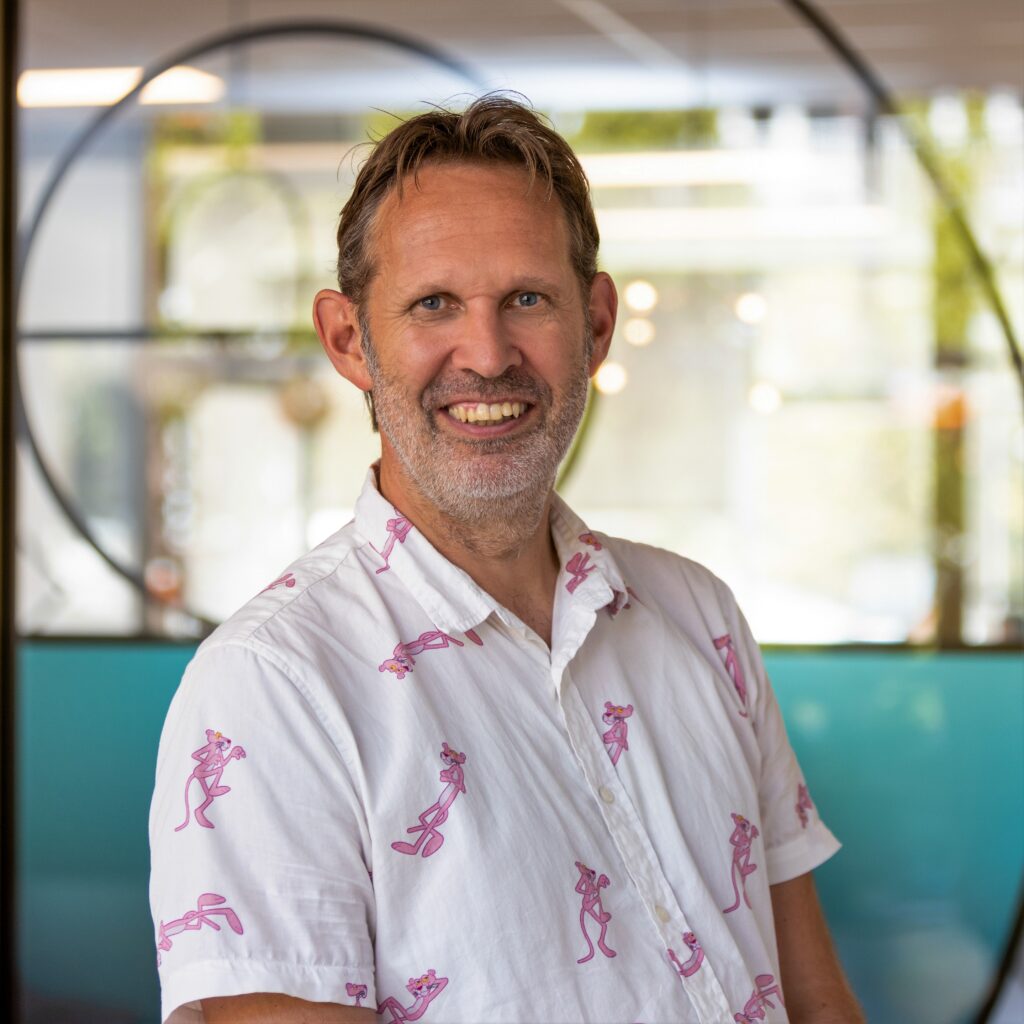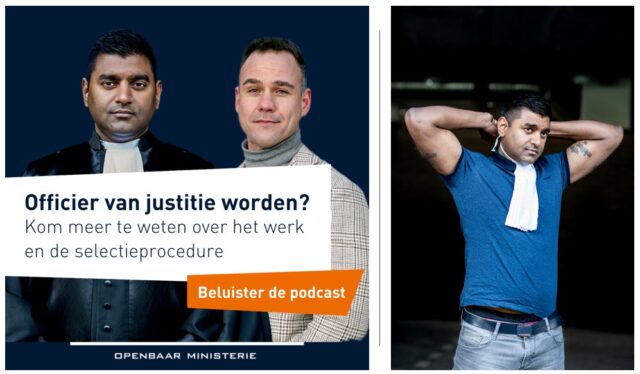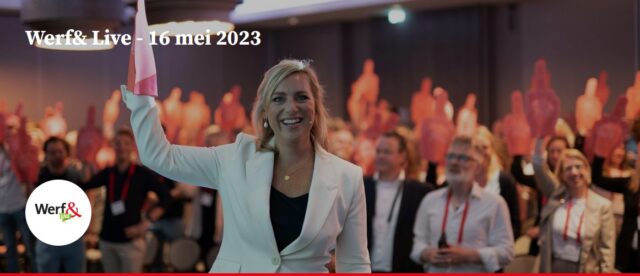
Are you fully committed to approaching candidates yourself and then trying to convince them? Or create all kinds of content yourself to inform candidates about what working for you is like, and try to seduce them with it? In today’s job market, most employers emphasize one of two recruitment strategies. But at the Public Prosecution Service they see the most value in a combination of both, i.e.: both employer branding and sourcing .
‘I notice that I have to explain less and less to potential candidates.’
 ‘A superpower’, Milou Verhoeks even calls it, which she will also talk about during Werf& Live on May 16 , where she will mainly highlight the case of the Public Prosecution Service from her role: that of sourcing . From Cooble, she has been involved in the initial contacts between the Public Prosecution Service and potential candidates for almost two years, and she sees the added value every day if an employer also works on employer branding at the same time . ‘I notice that I have to explain less and less, it goes faster before people get enthusiastic, and you can go into depth more quickly, because they have often already seen or heard something about working at the Public Prosecution Service.’
‘A superpower’, Milou Verhoeks even calls it, which she will also talk about during Werf& Live on May 16 , where she will mainly highlight the case of the Public Prosecution Service from her role: that of sourcing . From Cooble, she has been involved in the initial contacts between the Public Prosecution Service and potential candidates for almost two years, and she sees the added value every day if an employer also works on employer branding at the same time . ‘I notice that I have to explain less and less, it goes faster before people get enthusiastic, and you can go into depth more quickly, because they have often already seen or heard something about working at the Public Prosecution Service.’
250 new prosecutors
The Public Prosecution Service has been struggling with a significant shortage of Public Prosecutors for some time . The work is becoming increasingly complex and requires more specialization and customization. Since last year, there has been an attack plan ( ‘ Labor market strategy and modernization training ‘) led by Mano Radema (of Maan Consultancy ), which aims to tackle that shortage. The aim is to recruit 250 new prosecutors within 3 years and to prepare this group for the courtroom within 5 years.
‘I can now simply send candidates who want to know more a link to the podcast.’
The training itself lasts 2 years. The necessary officers in training have already been recruited through the labor market campaign in combination with sourcing, says Verhoeks. ‘There are 2 intake moments per year for the course. We are now doing a webinar 1 month before the start , in which anyone can ask questions to a prosecutor. The first time we had 190 registrations, the next time we had 240. We now also have a podcast The Officer’s Judgment . That’s super handy for me. I can now simply send a link to candidates who want to know more about the organization.’
Two-way street
The content created not only makes it easier for Verhoeks to interest candidates, it is also two-way traffic, she says. ‘It goes hand in hand and really reinforces each other. If they want to get started with the website, they first call me: what do you hear from the target group? What are the most frequently asked questions? And that results in a FAQ block on the site. For example, I often heard the question: can I combine it with my family? We have now paid more attention to this on the site.’
‘I was often asked: can I combine it with my family? We have now paid more attention to this on the site.’
And when the public prosecutors threatened actions and strikes earlier this year , a question also came to Verhoeks. ‘Of course I speak to a lot of people. From employer branding perspective , they then wanted to know: are people concerned about that? Should we also release something about that?’ What she means is: it works best if you work well together. ‘As a sourcer you often find yourself on an island. But here we really do it together, as partners. We also really source on behalf of the organization. Then you can be much more than an external agency.’
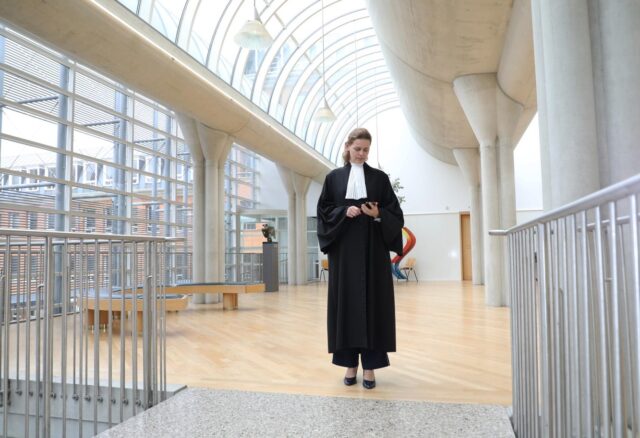
The shortage in Limburg
This also changes the role of recruiters at the Public Prosecution Service, Verhoeks sees. They become more of a spider in the web, bringing together employer branding on the one hand and the sourcers on the other. Those involved now contact each other once a week to coordinate. What is everyone doing? Where are the accents? This way Verhoeks can also focus more on certain groups. ‘For example, there is a major shortage, especially in the Limburg region. Then we can source extra for that. And in Rotterdam diversity plays a major role. Then we can also pay more attention to this in our sourcing. That’s the nice thing about such a long collaboration.’
For example , the podcast series featured Roy Nanhkoesingh ( see photo ), who was previously extensively portrayed in the Volkskrant as a prosecutor with tattoos, and who talked about how discrimination also affected him. This shows that ‘he is no longer the stiff public prosecutor, but that underneath the gown he is also just a human being’, says Verhoeks. That is also a major advantage of working at the Public Prosecution Service, she says: the public prosecutors themselves are happy to participate in recruitment. ‘That really works perfectly for this target group. Students in particular would prefer to hear the story from themselves.’
The Public Prosecution Service’s recruitment team, including the sourcers and employer branders, with Mano Radema (middle) and Milou Verhoeks (right) in the foreground:
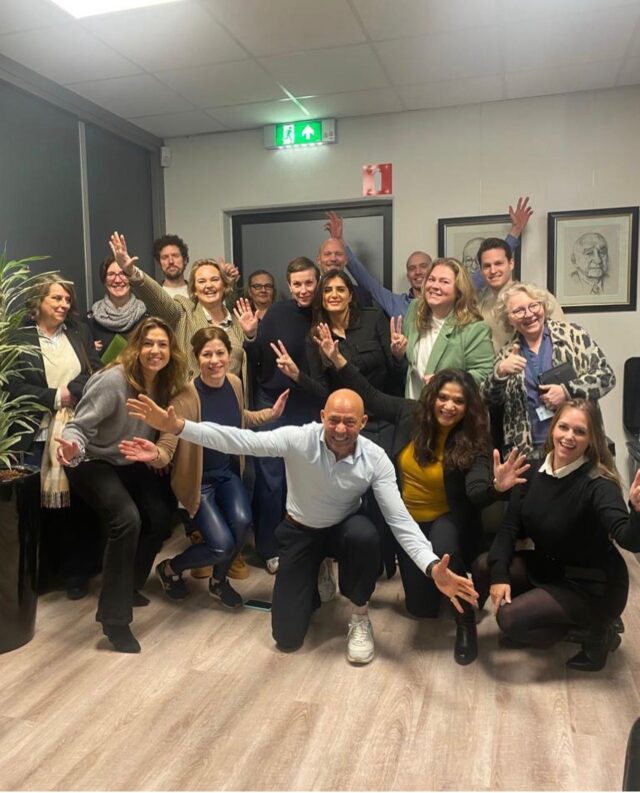
Knowing more?
Curious about Milou Verhoeks’ whole story about the case at the Public Prosecution Service? Then register for Werf& Live on May 16. Look here for more information, or order your tickets immediately:

